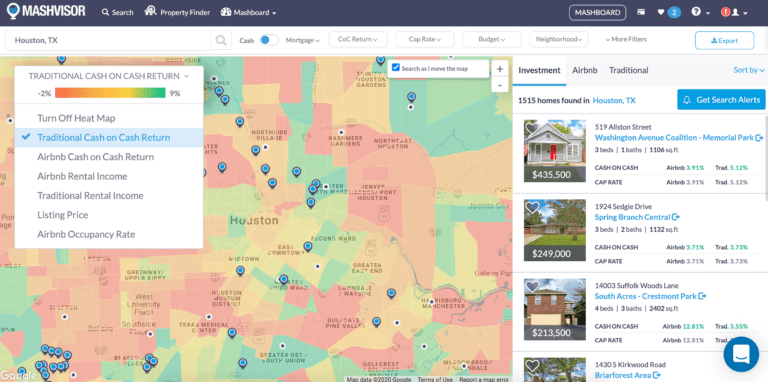How to Make an Offer on a House That Is Overpriced
Multifamily Syndication: The Beginner Real Estate Investor’s Guide
Every real estate investor hopes to find a great investment property listed at a discounted price or at least at fair market
value. While this is possible, sometimes the price of the house you want will be well over what you expect or what you can afford or even worse – it will be above the FMV. Sellers may overprice a house for a number of reasons. They may not understand the housing market, may be inexperienced, or may just be greedy. For a real estate investor, knowing how to make an offer on a house that is overpriced is an essential skill. While buying overpriced homes is difficult, it’s not impossible. You can still get a good deal if you use the right strategies.
Read on to learn how to make an offer on a house that is overpriced. By following the tips below, you’ll greatly boost your chances of getting a good deal.
Related: Will House Prices Go Down in 2021?
1. Hire an Experienced Real Estate Agent
One of the best ways to increase your odds of getting your offer accepted is to hire an experienced buyer’s agent. An experienced buyer’s agent will likely know how to negotiate an overpriced house and will do it on your behalf. When interviewing potential agents, it’s important that you ask them if they have experience in negotiating unnecessarily expensive houses.
2. Find Out if the Home Is Really Overpriced
Real estate investors should understand that not every property listed for sale is priced reasonably. However, you shouldn’t toss in a lowball offer before you determine if the house is truly overpriced for that market. If your offer is too low, it will often get rejected. Therefore, it’s important that you understand how to tell if a house is overpriced.
One of the best ways to determine if the house is really overpriced or not is to conduct a comparative market analysis. CMA involves determining a property’s fair market value based on similar houses in the area that have recently sold, called real estate comps. If a house is priced significantly higher than the fair market value, it’s clearly overpriced. You should never rely on the seller’s opinion of what the property is worth. The asking price should not be taken as an accurate depiction of the true value of the property. Naturally, every seller wants to sell for as high as price as possible.
The fastest and easiest way to find reliable real estate comps for overpriced homes in the US housing market is to use Mashvisor’s investment property calculator.
To get access to our real estate investment tools, click here to sign up for Mashvisor today and enjoy 15% off.
Related: Everything to Know About Real Estate Comps and How to Find Them
You can also determine if a home is overpriced by checking how long it has been on the market and comparing it to the average days on the market for that local market. For instance, if the average days on the market in the neighborhood is 25 days and the house you want to buy has sat on the market for 50 days, it’s likely because of being housing overpriced.
3. Present Evidence to Show That the Home Is Overpriced
Being indignant over the property’s price will only put the seller in defensive mode. The best way to justify a lower offer is to use objective market data. When making an offer on a house, be sure to include a detailed comparative market analysis report that you used to base your offer price on.

Show the Seller a Copy of the CMA Report
2021 Price to Rent Ratio in the US Housing Market: What Should Investors Expect?
By providing the property seller with a CMA report, you’ll take the emotion out of the transaction. If you are able to show the seller that your offer is low but reasonable, you are likely to get a concrete response from him/her. Make sure that you know how long sellers have to respond to an offer.
4. Know Your Seller
When negotiating overpriced homes, it’s important that you understand the needs of the homeowners and how motivated they are. While every home seller wants the highest and best offer, he/she is not always motivated by money alone.
Ask the property seller different questions that will help you find out what is his/her motivation to sell is. You may find terms that are of great importance to the seller but of low importance to you. Sellers who are motivated to get the home off their hands are likely to consider lowering their listing price. Choosing a seller with high motivation to sell will allow you to get a good deal.
5. Make Your Offer as Appealing as Possible
When making offers on overpriced houses, you want them to stand out. To get the seller’s attention, consider adding other attractive components in your offer other than the price.
If you are making a lowball offer, you can sweeten the deal and motivate the seller in the following ways:
- Include a mortgage pre-approval letter
- Provide a substantial earnest money deposit
- Include fewer contingencies
- Offer closing date flexibility that would appeal to the seller
If the seller is reviewing multiple offers that are low, having the things above can make your offer sounds more attractive and improve the chances of it being accepted.
6. Be Ready to Negotiate Back and Forth
Sellers of overpriced homes will seldom accept your first offer right off the bat. They will often counter your offer a number of times before an agreement is reached. Therefore, if you really like this particular investment property for sale and the seller is reasonable, you should be patient and stick it out to the end.
Related: 10 Best Real Estate Negotiation Tips for Buyers
7. Be Ready to Walk Away
When making a low offer on overpriced real estate, always keep in mind that the seller may still not accept your offer even if it is very reasonable. You should be ready to walk away if things don’t work out. After all, as a real estate investor, you should not be led by your emotions and how much like a property. Instead, you should be directed by the expected return on investment. An overpriced property is less likely to bring positive cash flow and good cash on cash return.
For instance, in a seller’s market, some sellers may simply want to take advantage of the high demand for houses for sale and may be unwilling to budge on the list price. If you have given them the highest and best offer you can, but they still won’t accept it, just do yourself a favor and move on. If you waste your time making an offer on one overpriced house, you may lose out on another one that is fairly priced. Remember that other savvy real estate investors are also in search of the best opportunity in the local market. Thus, keeping in mind that the deal may go nowhere will prevent you from getting disappointed if the negotiation isn’t successful in addition to helping you move on when needed.
Related: When Should You Walk Away From a Real Estate Deal?
The Bottom Line
When dealing with overpriced houses, real estate investors need to prepare their offers with great care if they want to land a good deal. If you follow the 8 tips above, you are a few steps closed to being successful in buying an initially overpriced property at the right price. With the right knowledge of how to make an offer on a house that is overpriced, high list prices should never scare you away again.
To get yourself access to industry-leading real estate comps without the need to conduct exhausting CMA, sign up for a 7-day free trial of Mashvisor now, followed by a 15% discount on your subscription.
Start Your Investment Property Search!
Buyer’s AgentCMANegotiationsProperty PricesReal Estate Comps
How to Rent Your House: The 8-Step Guide to Success





Recent Comments